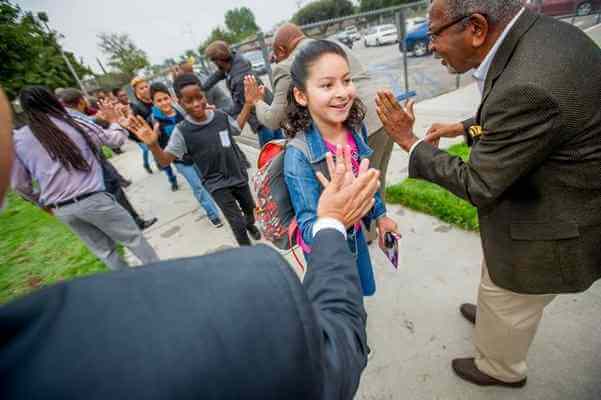For many, school serves as a system of filtration that challenges new and old ideologies of teaching structured by the lapse of time. Curriculums and teaching styles represents what people think is vital and necessary to the generation at hand. Today, there is an increasing differentiation between comprehension and ability among adolescents. There is not a question of what students are able to accomplish, but what teachers and administrators believe students cannot accomplish. Doubt of ability and punishment results in more harm to the student than progress. This doubt and punishment stems from a shortage of information and the enabling of non-experts within the education system.
The Difference : Punishment
What is an expert and a non-expert? How do we define the two? An expert is simply a person who has all the information and facts essential for prosperity; whereas a non-expert lacks in these fields of thought. Experts are aware of the resources and tools students required for success. Non-experts simply filter students through their classrooms. As a result, students are more often than not left behind.
Suppose a student asks the teacher a question in an attempt to further understand the lesson being taught; instead of being met with encouragement and a clear answer, the student is blamed for their inability to comprehend the subject. This educator is obviously a non-expert because they lack the knowledge of that student’s particular strengths and weaknesses. In contrast, a student who is encouraged for asking questions is more likely to comprehend the subject and thus have less fear of asking questions. This encouraging educator is aware of the student’s abilities and bases their teaching on their needs. In a classroom with encouragement, there is no such thing as right or wrong.
Solution: Encouragement
Today we see schools becoming more dependent on the filtration of students rather than the cultivation of knowledge. When did we compromise higher education for memorization and in return, punishment? We could insinuate that this generation is lazier and less inclined to be more involved in school activities than the last; or we can choose to recognize the root of the issue is in the education system. It lies in the training of teachers and in the foundation of school environments. Teachers and educators need to recognize that today’s class of students is far more diverse than what it once was. Old ways of punishment in exchange for growth is no longer effective. With this observation in mind, positive change is possible to occur in everyday classrooms. Nevertheless, it will fail to happen if there isn’t a fundamental understanding of the ever changing student ethic.
There is a supplementary solution for this current issue. LSA offers the opportunity of intellectual expansion. It serves as a foundation for students to expand their horizons and their knowledge of themselves and the world around them. The basis of the curriculum is that there is no right or wrong answer, and the only rule is that there are no rules. LSA’s summer program provides an open space for intelligent conversation without judgment. Students are given a sense of freedom within a less structured curriculum implemented with thought provoking ideas. The teaching may seem rather unconventional at first, but it proves rather quickly to be insightful in every way imaginable. LSA presents subject matter most schools fail to represent. We encourage students to devise solutions to difficult issues. We stay away from penalizing and reprimanding students for wrong answers.
Conclusion
 We may not be able to reconstruct the entire foundation of the educational system within the U.S. at this time, but we can begin with implementing new courses of action such as the curriculum that LSA offers. The pursuit of knowledge as well as the malleability of intelligence in adolescents is entirely rooted in teaching. Educators must become more proactive and resilient in their mission to educate the masses. It may seem impossible or outlandish to set such a goal.
We may not be able to reconstruct the entire foundation of the educational system within the U.S. at this time, but we can begin with implementing new courses of action such as the curriculum that LSA offers. The pursuit of knowledge as well as the malleability of intelligence in adolescents is entirely rooted in teaching. Educators must become more proactive and resilient in their mission to educate the masses. It may seem impossible or outlandish to set such a goal.
However, an organization like LSA exists for something greater than themselves. They exist out of passion for students who need encouragement and strive for excellence in an otherwise subdued environment. Change and progress are vital in the classroom. As we know teaching is based on time and what is necessary for this generation. In many ways our observations have failed us, or we have not gathered the correct information to induce change. The catalyst for recourse is already in place. To catalyze these events, we must identify the most crucial factor to set this course of change in motion. It commences with encouragement.


